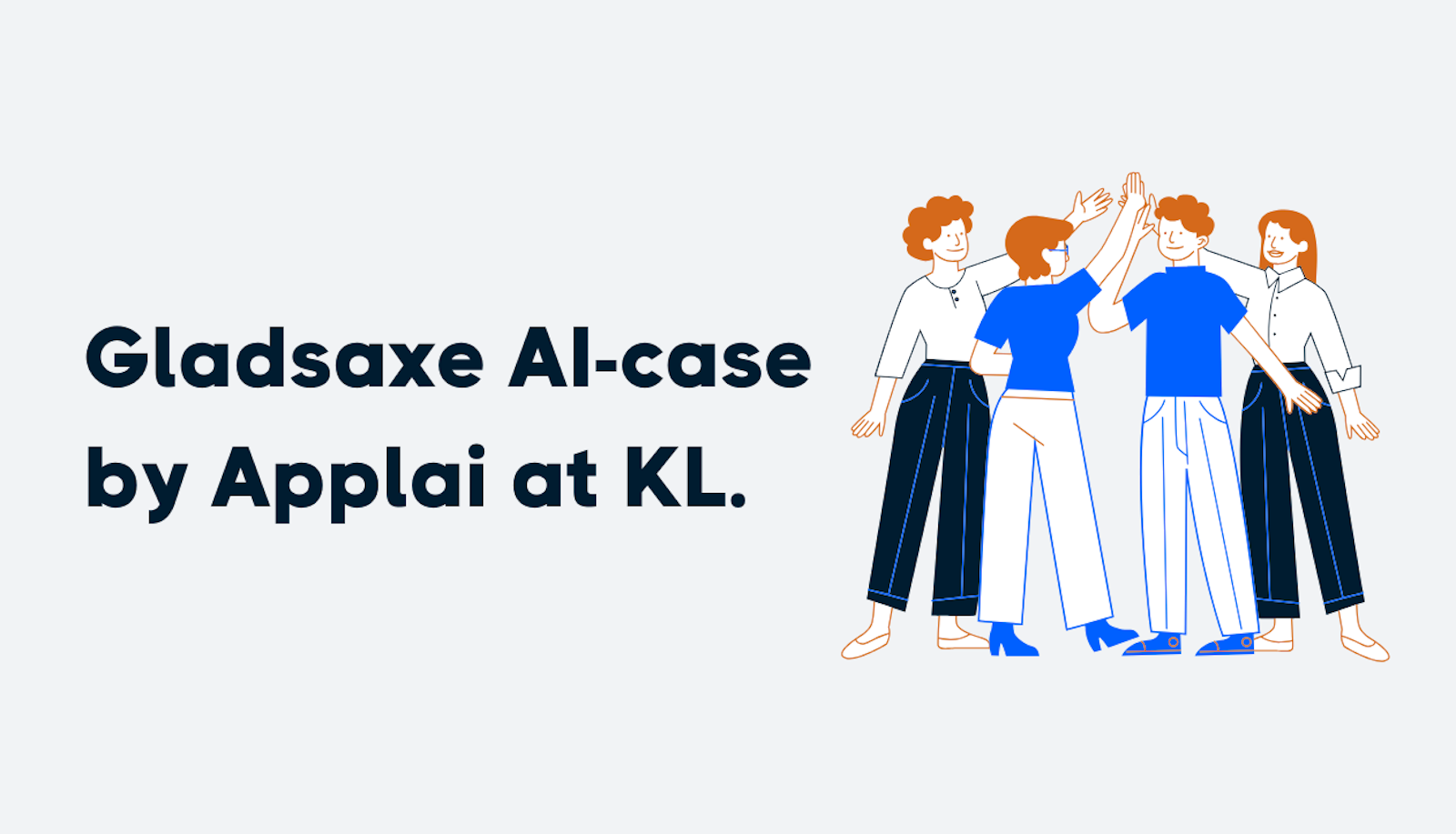

KL's webinar series on generative AI includes various sessions focusing on the use and development of AI in municipal contexts. One notable case study is from Gladsaxe Municipality, where they explore the practical application of AI through specialized chatbots that assist employees in their daily tasks.
This initiative is part of a broader effort by the Danish Language Model Consortium, led by IBM, Danish Business Authority, and Alexandra Institute, to develop future Danish language models through public-private collaboration. Read more here. See the full webinar here (case study with Gladsaxe starts at 53 minutes).
We feel very honored that Gladsaxe has chosen Applai as their partner for generative AI. During the webinar, Thomas Lerche (Digitalization manager at Gladsaxe Municipality) presented his findings from the early stages of the project with Applai. Here are his key findings:
The problem
Gladsaxe Municipality asked their employess what they were missing from ChatGPT. In other words, what use cases could not be solved using ChatGPT? The employees responded saying things like; "We would like an easy way to get clear guidance for how to use AULA." and "we are 80 caseworkers who need to quickly understand the new 'Childrens law' so we can reduce the time spend searching for information."
The benefits
Quality in responses
Specialized AI assistants can deliver higher quality responses that are tailored and trained for specific fields.
Credibility and transparency
The assistants offer a higher degree of credibility by citing their sources and making fewer guesses.
Streamlining workflows
Specialized AI assistants can support and streamline specific workflows and assist in training new employees.
The requirements
Option to switch language models
We do not want to be locked into specific technologies or language models that quickly become outdated.
Easy setup of new assistants
It should not require external consultant hours or consume many internal resources to train and set up assistants.
Ensure control and data security
We want to store training data and logging data ourselves and use "our own" language model.
Three step implementation
Train
Load data from local files, websites, or the intranet and use them to train a specialized AI assistant.
Build
Choose a language model, define rules and the assistant’s role, and give it a user-friendly appearance and behavior.
Share
Provide controlled access to the assistant via the municipality’s own access management system (AD FS).
Test examples
Solution overview
Data is processed exclusively by the municipality itself and, if applicable, the LLM host (e.g., Azure).
The web interface for building chatbots is continuously maintained with new features and always supports the latest AI models.
A complete secure solution that integrates with the municipality’s existing security setup.
Product demo
Status and process
Technical Implementation
Three specialized AI assistants are now operational and ready for implementation
Assistants in Operation
The three assistants will be tested until the summer holidays and experiences will be gathered
Introduction and Training
The three departments are introduced to the new assistants and receive training in their use
Implementation in a Broader Perspective
Strategic discussion - where do we need assistants, what are the consequences, etc.?
Easy to Get Started
Price and Setup
With the municipality's own LLM instance on Azure and self-hosting of data.
| Number of chatbots | Loaded data | Number of messages | Price per month |
|---|---|---|---|
| 1-10 | Unlimited | Unlimited | 5,000 DKK |
| 11-50 | Unlimited | Unlimited | 15,000 DKK |
| 51-250 | Unlimited | Unlimited | 22,500 DKK |
In addition to the license for Applai, there are costs for LLMs, which are settled directly with Azure.
Contact for more information:
Applai
Applai.dk
Victor Skytte, Co-founder
Victor@applai.dk
+45 28 76 22 98
Thank you for reading and please share this blog post.
🫶
Mathias